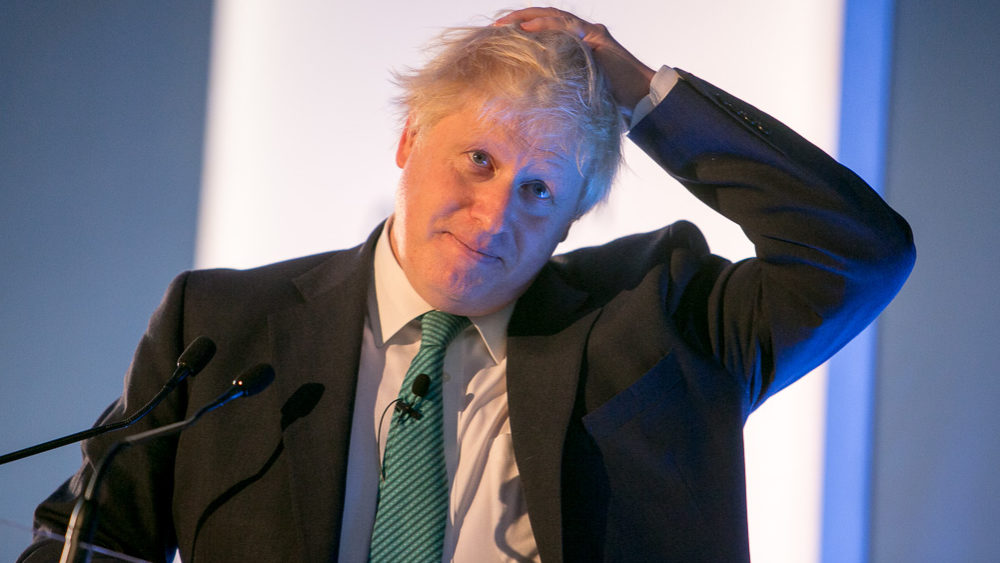The UK General Election is over. The results are in and, as promised, here is a wee summary of what the results mean.
For those who missed it – in a surprise outcome, Boris Johnson was returned as Conservative Prime Minister of the UK with a large majority of 78.
What does all this mean?
1. Brexit will happen
Johnson’s Brexit deal, already agreed with the EU, will now be passed and the UK will formally leave the EU at the end of January. It is an historic moment, but what kind of Brexit it will end up being is very much up in the air.
It could be what is termed Brexit In Name Only, (BINO) or a ‘no deal’ Brexit. I suspect it will be something in between.
2. Scotland leaving the UK is less likely
As a politically charged Scotsman working in Australia with ministry movement Third Space, the Scottish part of the election was always going to grab me. And the Scottish Nationalists did really well. The increased their seats by 13 to 48. So, surely, Scotland taking such a divergent path from the rest of the UK increases the likelihood of a breakaway? Although the London and Manchester based media delight in making such an analysis, it is a superficial and false one.
Scottish Independence is now less likely because of the following reasons:
a) The best possible result for the SNP would have been a hung parliament, where Labour would have been dependent on the Nationalists to form a government. The price would have been another referendum. That has now gone.
b) Boris Johnson will not give a ‘section 30’ order. That is a legal requirement from the UK government to grant another Independence referendum. He will refuse to do so, as the last independence referendum in 2014 was supposed to settle things for a generation. Scotland’s First Minister, Nicola Sturgeon, has already said she will abide by the law and not hold a referendum without it.
c) About 46% of Scots voted for Independence parties, 54% for the others. Support for Scottish Independence would need to be far higher if a referendum was to be won.
d) Scotland will be out of the EU if and when another Independence referendum come -s and will have to apply for membership as a new country if the vote was won. This makes independence even more of an economic risk: out of the UK would result in economic hardship; being out of the EU as well would make it worse.
For all these reasons the Nationalist government will huff and puff, march and petition, plead and shout, but it will all be to no avail – except to feed the sense of grievance and ensure the SNP keep its electoral stranglehold on Scotland (until the penny drops for the Scottish people).
3. A United Ireland is more likely
Although Scotland is less likely to break away; there could well be serious constitutional change as a result of this election. It is now more likely that Northern Ireland will become part of a United Ireland, because:
a) For the first time, there are more nationalist and non-unionist MPs than Unionists from Northern Ireland.
b) It is highly likely that any Brexit deal will now include different arrangements for Northern Ireland in order to prevent a ‘hard’ border in Northern Ireland. Now that the Conservative government, with its healthy majority, is not longer dependent on the Democratic Unionists (who lost two MPs), they no longer need to fear their reactions.
c) Above all, it’s the sheer demographics. Despite the rise of the Alliance Party, politics in Northern Ireland is still essentially tribal. The Catholic population is growing while the Unionist is declining (that was a major factor in their parliamentary leader Nigel Dodds losing his Belfast seat, an area subject to a changing demographic).
4. Politics in the UK could be changed forever
There is something going on throughout the Western World.
The old politics of Right and Left is being replaced by a new politics which seems to have a different axis – the progressive/traditional divide? The haves and the have not’s?
Whatever it is, it is as much classed based as the old politics – only this time it is the wealthy and the ‘educated’ middle classes who are far more likely to vote for the ‘Left’ (witness the number of rich and famous celebrities who, in the last days of the election, made heartfelt pleas for the plebs to vote for their man).
The working class and the poor are more likely to vote for the traditional Conservative parties. This was seen in the UK election where the Northern and Midlands “wall” was well breached by the Tories.
Seats which had never voted Conservative moved from the red to the blue.
It remains to be seen whether this is anything more than a temporary phenomena – but it does appear to be part of a wider pattern.
Where to from here?
In the immediate wake of the UK election, I’m struck by how these are confusing times. While we may be able to see something of the social and political patterns emerging, we do not know what will happen.
Just as there are storms and fires in the natural world, so there is “climate change” in the political world.
For the non-Christian who sees what is going on, it must be a nightmare.
The Christian at least has the consolation of knowing that ultimately all our times are in His hands.
David Robertson is a Scottish Pastor who has moved to Sydney to become the Director of Third Space, a new evangelism initiative of City Bible Forum.

